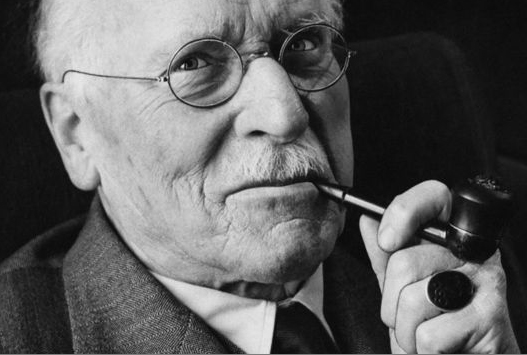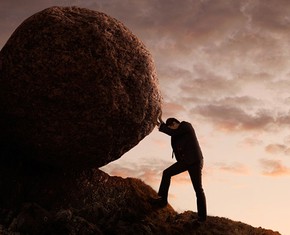The views expressed in our content reflect individual perspectives and do not represent the authoritative views of the Baha'i Faith.
The earth is but one country, and mankind its citizens… So powerful is the light of unity that it can illuminate the whole earth. – Baha’u’llah, Gleanings from the Writings of Baha’u’llah, pp. 250, 288.
Many see these gems of divine wisdom from Baha’u’llah as the source of the spiritual forces guiding our conscious evolution today. But how would we know this if not for our own personal experience that validates it?
When we come to understand our own experience as greater than ourselves, we begin to feel we are part of a sacred story unfolding around us, providing us with a new view of the world and giving us a new meaning of our place in the world. When our own personal sacred story reflects what is going on collectively around us, we are caught up in the spirit of our time.

Carl Jung
This is exactly what psychologist C.G. Jung was looking for when he asked in his autobiography in the early 1960s: in what myth (i.e., sacred story) do we live in today? He had confronted his own unconscious, and found no answer to this question of what myth he was living in. He felt it wasn’t the Christian myth that he lived by, so what was it?
Was Jung tapping in to one of the most important questions of our time? Perhaps we each need to ask ourselves, what is the sacred story of our time? What most characterizes the time in which we live? What most strikes a chord of resonance within us? What deep truth of the human spirit calls out to us the loudest today? What speaks most clearly and strongly to our soul? What are the guiding forces of our time?
For me, beginning college around the time Jung wrote his autobiography, there was so much to consider, so much to weigh, to take in and try to integrate into a new unfolding understanding.
The civil rights movement of the 1960s focused on the deep-rooted inequalities that had lingered since before the Civil War. Martin Luther King, Jr.’s vision of oneness: “Every nation must now develop an overriding loyalty to mankind as a whole… This… is a call for an all-embracing and unconditional love for all mankind” –became a rallying cry for all generations.
A long timeline of inequalities toward women, going back to the 18th century, reached a turning point in the 1960s with women’s rights and feminist advances such as the President’s Commission on the Status of Women, NOW, and the Equal Employment Opportunity Commission.
By 1969, it seemed like reality had caught up with an age-old vision. The moonwalk, and the remarkable new photos sent back from the moon, made it possible to view the Earth in a way only previously imagined—as a shimmering globe floating in the heavens with no visible boundaries between human beings. We knew from our own experience, with our own eyes, that humanity is one. Our new view of our world—from the moon—confirmed what the great visionaries and prophets of earlier times had told us from their journey to their depths.
It was soon after this that I met Joseph Campbell, the great scholar of the world’s mythic sacred stories. In one of my visits to his home, he gave me his book Creative Mythology. In the beginning of the book, he offered his reflections on having completed his four-volume work Masks of God:
I find that its main result for me has been its confirmation of a thought I have long and faithfully entertained: of the unity of the race of man, not only in its biology but also in its spiritual history, which has everywhere unfolded in the manner of a single symphony…
If “the unity of the race of man” is the primary archetype of the myth, or sacred story, of our time, what might the supporting archetypes be that would bring this into being, I wondered? It seemed to me that such secondary archetypes would have to be those that would promote such a collective unity.
Also around this time, at a Hudson River sloop festival, I picked up a pamphlet on the Baha’i Faith, and found that its primary teachings—the oneness of humanity, and one source for all religions—were all a foundation for unity, and paralleled exactly what I had been finding in my own experience. As I learned more about the Baha’i principles—the independent investigation of truth, the equality of women and men, the harmony of science and religion, the elimination of prejudice of all kinds, a spiritual solution to the widening gap between wealth and poverty, and universal peace upheld by a world government—I felt more and more like the spirit of our time had appeared, what this age was crying out for.
These spiritual principles actually predated, and some would say even inaugurated, what has now become the prevailing spirit of our age.
Amid the changes, chaos, and confusion of these times, we have also witnessed a parallel process of the progressive integration of the world’s peoples into the citizenry of a single global homeland. The Baha’i teachings say that being a citizen of the world means having a consciousness of the entire world as a whole, and acting accordingly.
Soul-making is as much about our state of consciousness—and what we do in the world with it—as it is about the things that happen to us. Could the spirit of our time be captured in the consciousness of the oneness of humanity? If we can find in our own experience any aspect of this universal spiritual principle that speaks to our heart, we will have found our own soul-making to be in harmony with our time.
















Comments
Sign in or create an account
Continue with Googleor